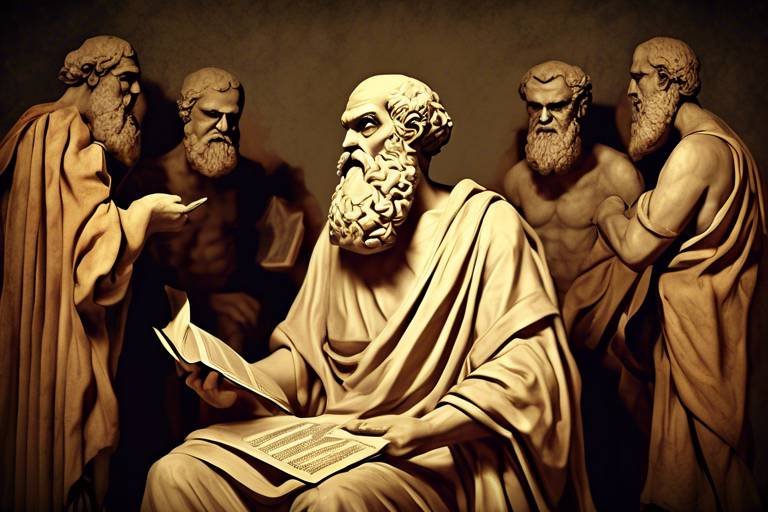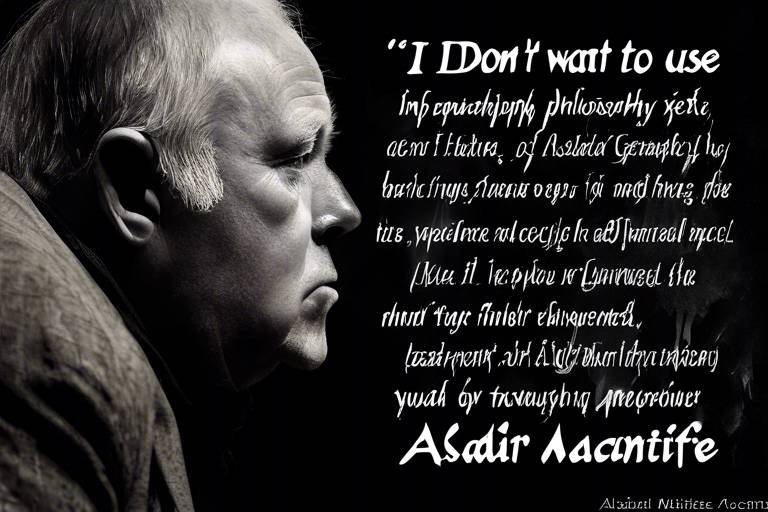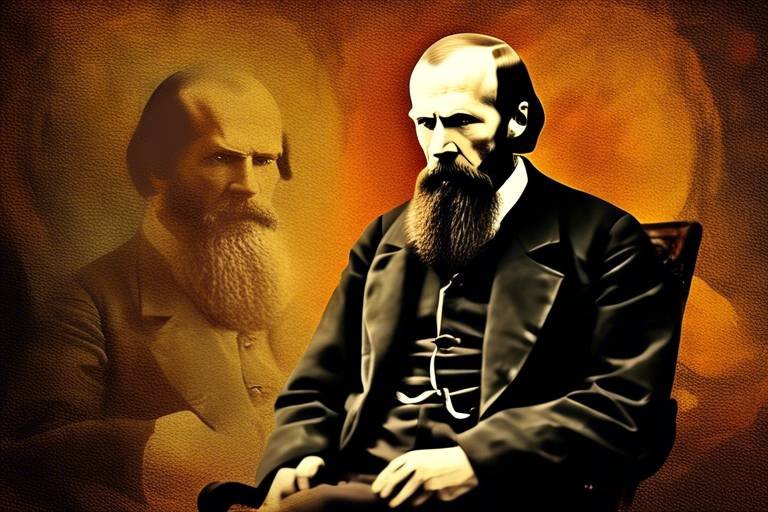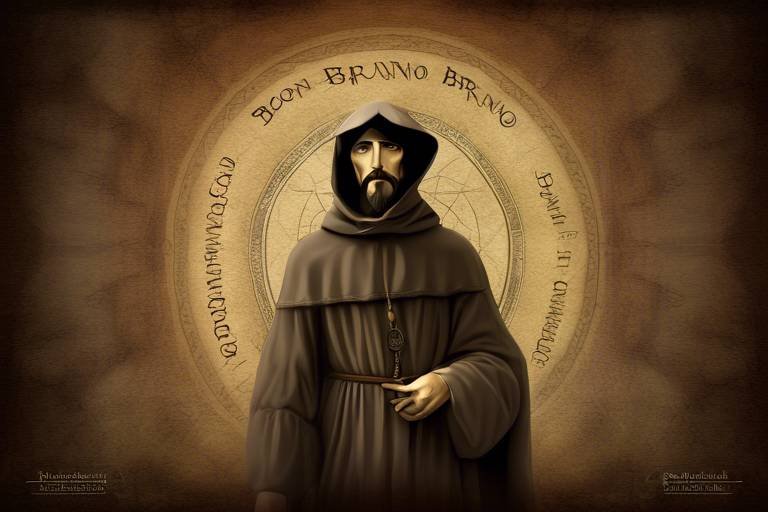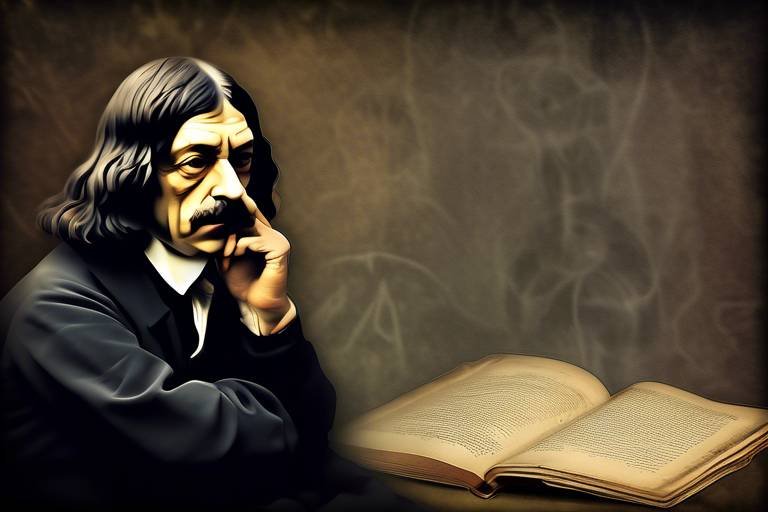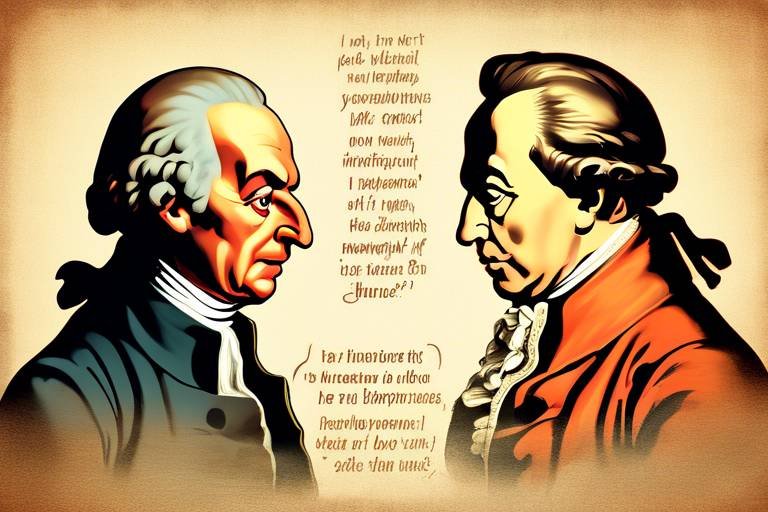Heraclitus’ Philosophy of the Logos and Change - An Overview
Heraclitus, a pre-Socratic philosopher from Ephesus, has left an indelible mark on the landscape of Western thought, particularly through his concepts of Logos and the nature of change. His ideas challenge us to rethink our understanding of reality, emphasizing that the universe is not a static entity but a dynamic one, constantly in flux. This article aims to unpack these profound concepts, offering insights into how they shape our perception of existence and the cosmos. By diving into Heraclitus’ philosophy, we can appreciate the intricate dance of change and order that he believed governed everything around us.
At the heart of Heraclitus' philosophy lies the term Logos, which he used to describe the underlying order of the cosmos. But what does this really mean? To Heraclitus, Logos is not merely a word or a concept; it represents the rational principle that organizes the universe. Imagine a grand symphony where every note, every pause, and every crescendo is meticulously arranged. Similarly, Logos is the invisible conductor of the universe, ensuring that chaos transforms into harmony. This fundamental order provides a framework for understanding the ever-changing world around us, suggesting that beneath the surface of constant change, there exists a deeper, unifying principle.
Change is not just a theme in Heraclitus' philosophy; it is its very essence. His assertion that "everything is in a constant state of flux" invites us to reconsider our views on permanence and stability. How often do we cling to the idea that things should remain the same? Heraclitus challenges this notion, arguing that change is the only constant. Think of a river: while we may see it as a single entity, the water flowing past us is never the same from one moment to the next. This perspective invites us to embrace the fluidity of existence, recognizing that every moment is unique and transient.
The phrase Panta Rhei, meaning "everything flows," encapsulates Heraclitus' belief in perpetual change. This idea has profound implications for our understanding of reality and existence. It suggests that nothing is truly fixed; instead, everything is in a state of becoming. Consider a tree: while it may appear solid and unchanging, it is continuously growing, shedding leaves, and adapting to its environment. By acknowledging this constant flow, we can begin to appreciate the interconnectedness of all things and the role that change plays in our lives.
Heraclitus famously stated that opposites are necessary for harmony. This idea may seem paradoxical at first, but it reveals a deeper truth about the nature of change. Without darkness, we cannot appreciate light; without struggle, we cannot understand peace. In this way, contradictions contribute to the process of change and the balance of the universe. Imagine a tightrope walker: the tension between balance and fall creates the dynamic necessary for movement. Similarly, the interplay of opposites is essential for the evolution of reality, illustrating that change often arises from conflict and resolution.
How do we reconcile the idea of change with our understanding of identity? Heraclitus offers a compelling perspective: identity is not a fixed state but rather something that evolves over time. Just as a river is never the same from moment to moment, our identities are shaped by our experiences, interactions, and the changes we undergo. This fluidity invites us to embrace our own transformations, understanding that growth often requires letting go of who we once were. In essence, Heraclitus encourages us to see ourselves as works in progress, continually adapting and evolving.
In Heraclitus' philosophy, fire symbolizes transformation. He uses fire as a metaphor for change and the dynamic nature of existence, suggesting that just as fire consumes and transforms matter, change is an integral part of life. Think of fire's ability to both create and destroy: it can forge new paths while also reducing the old to ashes. This duality reflects the essence of change, where destruction often paves the way for new beginnings. By embracing the transformative power of fire, we can learn to navigate the complexities of life with resilience and adaptability.
Heraclitus posits that opposites are interconnected and essential for the harmony of the universe. This idea shapes his understanding of reality, suggesting that the coexistence of opposing forces is necessary for balance. For instance, consider the relationship between hot and cold; without one, the other loses its meaning. This interconnectedness invites us to recognize that our experiences, emotions, and even our beliefs often exist in a delicate balance of opposites. By understanding this unity, we can cultivate a more profound appreciation for the complexities of life.
Heraclitus employs dialectical reasoning to illustrate the relationship between opposites. This method enhances our comprehension of change and unity, encouraging us to see beyond surface-level contradictions. By engaging in dialectical thinking, we can explore the deeper connections between seemingly opposing ideas and recognize that they often coexist in a larger context. This approach not only enriches our understanding of Heraclitus' philosophy but also equips us with a valuable tool for navigating the complexities of our own lives.
Heraclitus' ideas have significantly impacted subsequent philosophical thought. His concepts of Logos and change influenced thinkers like Plato and the Stoics, who grappled with the implications of his insights. The ripple effect of his philosophy can be seen throughout the history of Western thought, as later philosophers sought to understand and expand upon his ideas. In many ways, Heraclitus serves as a bridge between early philosophical inquiry and the more systematic approaches that followed, reminding us that the quest for understanding is an ever-evolving journey.
- What is the main idea of Heraclitus' philosophy? Heraclitus' philosophy centers around the concepts of change and the Logos, suggesting that everything is in a constant state of flux, governed by an underlying order.
- How does Heraclitus define Logos? Logos is the rational principle that organizes the universe, akin to a conductor guiding a symphony, ensuring harmony amidst chaos.
- What does "Panta Rhei" mean? "Panta Rhei" translates to "everything flows," encapsulating Heraclitus' belief in perpetual change and the transient nature of reality.
- How did Heraclitus influence later philosophers? Heraclitus' ideas significantly impacted thinkers such as Plato and the Stoics, who grappled with the implications of his insights on change and the nature of existence.

The Concept of Logos
Heraclitus introduced the term Logos to describe the underlying order of the cosmos, a concept that resonates deeply within the realm of philosophy. To Heraclitus, the Logos is not merely a word or a set of ideas; it is the fundamental principle that governs the universe. Imagine the Logos as the intricate web that connects all things, a silent yet powerful force that orchestrates the dance of existence. This idea invites us to ponder: What holds the universe together amidst the chaos?
In essence, the Logos represents a rational structure that underlies the ever-changing nature of reality. It embodies a harmony that exists within the discord, suggesting that even in a world of constant flux, there is a coherent order at play. Heraclitus famously stated, "You cannot step into the same river twice," illustrating that while everything is in a state of flux, the Logos provides a framework that allows us to understand this change. So, how do we grasp the significance of the Logos in our daily lives?
To delve deeper into the concept of Logos, we can break it down into several key aspects:
- Rational Order: The Logos signifies a rational order that governs the cosmos, suggesting that there is a reason behind every change.
- Unity in Diversity: Despite the apparent chaos, the Logos implies a unity that links all opposites, creating a harmonious balance.
- Interconnectedness: The concept emphasizes that all things are interconnected, and understanding the Logos can lead to a greater comprehension of existence itself.
The significance of the Logos extends beyond mere philosophy; it challenges us to rethink our understanding of reality. In a world where change is the only constant, the Logos serves as a reminder that there is a deeper structure to our experiences. It encourages us to look beyond the surface and seek the underlying principles that govern our lives. Just like a skilled conductor leading an orchestra, the Logos ensures that every note, every change, contributes to the beautiful symphony of existence.
In conclusion, Heraclitus' concept of the Logos invites us to embrace the complexity of the universe while recognizing the rational order that underlies it. By understanding the Logos, we can gain insights into the nature of change and our place within the cosmos. So, the next time you find yourself overwhelmed by the chaos of life, remember that the Logos is there, guiding you through the ebb and flow of existence.

Logos
This article explores the fundamental concepts of Heraclitus' philosophy, focusing on the ideas of the Logos and the nature of change in the universe, providing insights into his profound thoughts.
Heraclitus introduced the term to describe the underlying order of the cosmos. This concept is not just a mere word; it embodies the essence of reality itself. Think of as the universal blueprint, a guiding principle that governs the chaotic and ever-changing world around us. It suggests that beneath the surface of constant flux, there exists a rational structure that connects everything. This idea was revolutionary, as it challenged the prevailing notions of randomness and chaos that dominated early thought.
Logos can be understood as the reason or logic that permeates the universe. Heraclitus believed that by grasping the , one could understand the deeper truths of existence. It is through this understanding that we can appreciate the intricate dance of opposites that shapes our reality. For Heraclitus, the is not just an abstract idea; it is a living force that manifests itself in the world through change and transformation.
To illustrate the significance of , consider this: just as a conductor orchestrates a symphony, ensuring that each instrument plays its part in harmony, the orchestrates the universe, bringing order to chaos. Without it, the world would be a cacophony of disjointed events, lacking meaning or direction. Thus, the serves as a bridge between the transient nature of existence and the enduring truths that govern it.
In Heraclitus' view, the is accessible to those who seek wisdom. It invites us to ponder profound questions about life, existence, and the universe. By contemplating the , we engage in a dialogue with the cosmos, seeking to uncover the hidden patterns that define our reality. This philosophical inquiry not only enriches our understanding of the world but also deepens our connection to it.
Moreover, the is deeply intertwined with the concept of change. Heraclitus famously stated, "You cannot step into the same river twice," highlighting the fluidity of life. The provides a framework for understanding how change is not chaotic but rather a necessary aspect of existence. It is through change that the reveals itself, demonstrating that stability and flux are two sides of the same coin.
Change is central to Heraclitus' thought. Here, we examine his assertion that everything is in a constant state of flux, highlighting how this concept challenges traditional views of permanence and stability.
The phrase Panta Rhei, meaning everything flows, encapsulates Heraclitus' belief in perpetual change. This subsection discusses its implications for understanding reality and existence.
Heraclitus famously stated that opposites are necessary for harmony. This section explores how contradictions contribute to the process of change and the balance of the universe.
This part analyzes how Heraclitus reconciles the idea of change with the notion of identity, suggesting that identity is not fixed but rather evolves over time.
Fire symbolizes transformation in Heraclitus' philosophy. This section investigates how he uses fire as a metaphor for change and the dynamic nature of existence.
Heraclitus posits that opposites are interconnected and essential for the harmony of the universe. This section discusses how this idea shapes his understanding of reality and existence.
Heraclitus employs dialectical reasoning to illustrate the relationship between opposites. This subsection explores how this method enhances our comprehension of change and unity.
Heraclitus' ideas have significantly impacted subsequent philosophical thought. This section highlights how his concepts of Logos and change influenced thinkers like Plato and the Stoics.
- What does the term Logos mean in Heraclitus' philosophy?
The term Logos refers to the underlying order and reason of the universe, a guiding principle that connects all aspects of reality. - How does Heraclitus view change?
Heraclitus believes that change is constant and essential to existence, encapsulated in his phrase "Panta Rhei," meaning "everything flows." - What role do opposites play in Heraclitus' philosophy?
Opposites are crucial for harmony and balance in the universe, and their interplay is essential for understanding the nature of change. - How did Heraclitus influence later philosophers?
His concepts of Logos and change laid the groundwork for future philosophical thought, influencing figures like Plato and the Stoics.

to describe the underlying order of the cosmos. This section delves into its meaning and significance in his philosophy, emphasizing its role in understanding the universe.
Heraclitus introduced the term Logos to describe the underlying order of the cosmos. This concept is not just a philosophical term; it represents a profound understanding of the universe's structure and its inherent laws. To Heraclitus, the Logos is the reason or principle that governs everything, serving as a bridge between the chaotic and the orderly. Imagine a grand symphony where every note, every pause, and every crescendo is intricately connected; that’s the essence of the Logos. It suggests that there is a rational structure behind the apparent chaos of existence.
The significance of the Logos in Heraclitus' philosophy cannot be overstated. It emphasizes that while change is the only constant, there is an underlying principle that provides coherence to this change. In a world where everything seems to be in flux, the Logos acts as a guiding force, helping us to make sense of our experiences. It’s like trying to navigate through a stormy sea; while the waves may toss you around, the stars above remain constant, guiding you to safety. This duality of change and order is what makes Heraclitus' thoughts so compelling.
Furthermore, the Logos is essential for understanding the interconnectedness of all things. Heraclitus believed that everything is related and that one cannot comprehend the whole without recognizing the part it plays in the grand scheme of things. This interconnectedness is vividly illustrated in nature, where every element, from the smallest atom to the largest galaxy, interacts in a complex web of relationships. The Logos is the thread that weaves these elements together, reminding us that we are all part of a greater whole.
In summary, the concept of the Logos serves as a fundamental pillar in Heraclitus' philosophy. It challenges us to look beyond the surface of change and chaos to find the deeper order that governs our universe. Understanding the Logos not only aids in grasping Heraclitus’ views but also encourages us to seek harmony in our lives amidst the inevitable changes we face.
Change is central to Heraclitus' thought. Here, we examine his assertion that everything is in a constant state of flux, highlighting how this concept challenges traditional views of permanence and stability.
The phrase Panta Rhei, meaning everything flows, encapsulates Heraclitus' belief in perpetual change. This subsection discusses its implications for understanding reality and existence.
Heraclitus famously stated that opposites are necessary for harmony. This section explores how contradictions contribute to the process of change and the balance of the universe.
This part analyzes how Heraclitus reconciles the idea of change with the notion of identity, suggesting that identity is not fixed but rather evolves over time.
Fire symbolizes transformation in Heraclitus' philosophy. This section investigates how he uses fire as a metaphor for change and the dynamic nature of existence.
Heraclitus posits that opposites are interconnected and essential for the harmony of the universe. This section discusses how this idea shapes his understanding of reality and existence.
Heraclitus employs dialectical reasoning to illustrate the relationship between opposites. This subsection explores how this method enhances our comprehension of change and unity.
Heraclitus' ideas have significantly impacted subsequent philosophical thought. This section highlights how his concepts of Logos and change influenced thinkers like Plato and the Stoics.
- What is the meaning of Logos in Heraclitus' philosophy?
The Logos refers to the underlying order and reason that governs the cosmos, representing the connection between chaos and order. - How does Heraclitus view change?
Heraclitus believes that change is the only constant in life, encapsulated in his phrase "Panta Rhei," meaning "everything flows." - What role do opposites play in Heraclitus' thought?
Opposites are essential for harmony and balance in the universe, as they are interconnected and contribute to the process of change. - How has Heraclitus influenced modern philosophy?
His ideas about the Logos and change have significantly shaped the thoughts of later philosophers, including Plato and the Stoics.

The Nature of Change
Change is not just a concept for Heraclitus; it is the very essence of existence. He boldly asserted that "everything is in a constant state of flux," a notion that shakes the foundations of traditional views that cling to permanence and stability. Imagine standing by a river, trying to grasp the water as it flows past you. You might think you can hold it, but as soon as you dip your hand in, the water has already moved on. This vivid imagery encapsulates Heraclitus' philosophy—nothing remains the same, and everything is perpetually evolving.
Heraclitus famously coined the phrase Panta Rhei, meaning "everything flows." This idea serves as a reminder that reality is not a static tableau but a dynamic interplay of forces and elements. Just as a river never ceases to flow, our lives are filled with constant changes—some subtle, others monumental. The implications of this belief are profound; it challenges us to rethink our understanding of reality and existence. Are we merely spectators in this ever-changing landscape, or do we actively participate in the transformation?
In examining the nature of change, we can identify several key aspects that Heraclitus emphasized:
- Impermanence: Everything we perceive is temporary, and nothing can be held onto forever.
- Interconnectedness: All changes are linked, creating a web of existence where one change affects another.
- Adaptation: Embracing change allows us to grow; resisting it leads to stagnation.
Heraclitus' thoughts on change also lead us to consider the role of contradictions. He argued that opposites are not just necessary; they are essential for harmony. For example, without darkness, we cannot appreciate light. This dialectical approach illustrates that change often arises from the tension between opposing forces. Think of it like a dance: the push and pull between partners creates movement and rhythm, leading to a beautiful performance. In this way, contradictions foster a balance that propels change forward.
Moreover, Heraclitus challenges us to reconsider our notions of identity in light of change. He suggests that identity is not a fixed state but a fluid concept that evolves over time. Just as a tree grows and changes with the seasons, we too are shaped by our experiences and the changes around us. This perspective invites us to embrace our evolving selves, acknowledging that the person we were yesterday is not the same as who we are today.
In summary, the nature of change in Heraclitus' philosophy serves as a powerful reminder of the dynamic universe we inhabit. By understanding that everything is in flux, we can learn to navigate our lives with greater awareness and acceptance. After all, change is not something to fear; it is the very fabric of existence, weaving together the tapestry of our lives.
- What does Heraclitus mean by "everything flows"? Heraclitus' phrase emphasizes the idea that all things are in constant motion and change, highlighting the impermanence of existence.
- How do contradictions relate to change in Heraclitus' philosophy? Contradictions are essential for harmony; they create a balance that allows for change to occur, much like opposing forces in nature.
- Can we find stability in a world of change? While change is inevitable, we can find stability in our responses and adaptations to it, allowing us to thrive amidst uncertainty.

Panta Rhei: Everything Flows
The phrase Panta Rhei, which translates to everything flows, is a cornerstone of Heraclitus' philosophy and encapsulates his profound understanding of the universe. Imagine standing by a river; you might think you’re gazing at the same water, but in reality, every moment, the water is different. This metaphor beautifully illustrates Heraclitus' assertion that change is the only constant in life. He believed that just as the river is never the same from one moment to the next, so too is everything in our universe subject to continual transformation.
Heraclitus emphasized that the world is in a state of flux, where stability is merely an illusion. This idea challenges our traditional notions of permanence, suggesting that what we perceive as solid and unchanging is, in fact, a dynamic interplay of forces. For instance, consider the way we perceive our own identities. We often think of ourselves as having a fixed personality, but in reality, we are constantly evolving based on experiences, relationships, and our environment. Just like the river, we are always flowing, adapting, and changing.
In Heraclitus' view, the essence of reality is rooted in this constant change. He famously stated, "You cannot step into the same river twice," highlighting the impossibility of experiencing the same moment in time. This perspective invites us to embrace change rather than resist it. It encourages a mindset that is open to new experiences and ideas, understanding that clinging to the past can lead to stagnation. The implications of Panta Rhei extend beyond mere philosophy; they resonate in our daily lives, urging us to adapt and grow.
Furthermore, Heraclitus believed that this flow of change is not chaotic but rather guided by a rational structure he called the Logos. The Logos represents the underlying order and reason that governs the universe, suggesting that while everything is in flux, there is a coherent logic to this transformation. This duality of chaos and order is where the beauty of existence lies. It’s a dance of opposites, where change leads to growth and new beginnings.
To put it succinctly, Panta Rhei is a reminder of the fluidity of life. It teaches us to be adaptable, to embrace the unknown, and to find harmony in the ever-changing landscape of our existence. Just as the river carves its path through the landscape, our lives are shaped by the choices we make in response to the changes around us. By acknowledging the truth of Panta Rhei, we can cultivate a deeper appreciation for the journey of life, recognizing that every twist and turn contributes to our personal narrative.
- What does Panta Rhei mean? - It means "everything flows," reflecting the idea that change is constant in the universe.
- How does Panta Rhei relate to personal identity? - It suggests that our identities are not fixed but evolve over time, influenced by our experiences and environment.
- What role does the Logos play in Heraclitus' philosophy? - The Logos represents the rational order that governs the constant changes in the universe.
- Why is change important in Heraclitus' philosophy? - Change is seen as essential for growth and understanding, encouraging us to embrace new experiences.
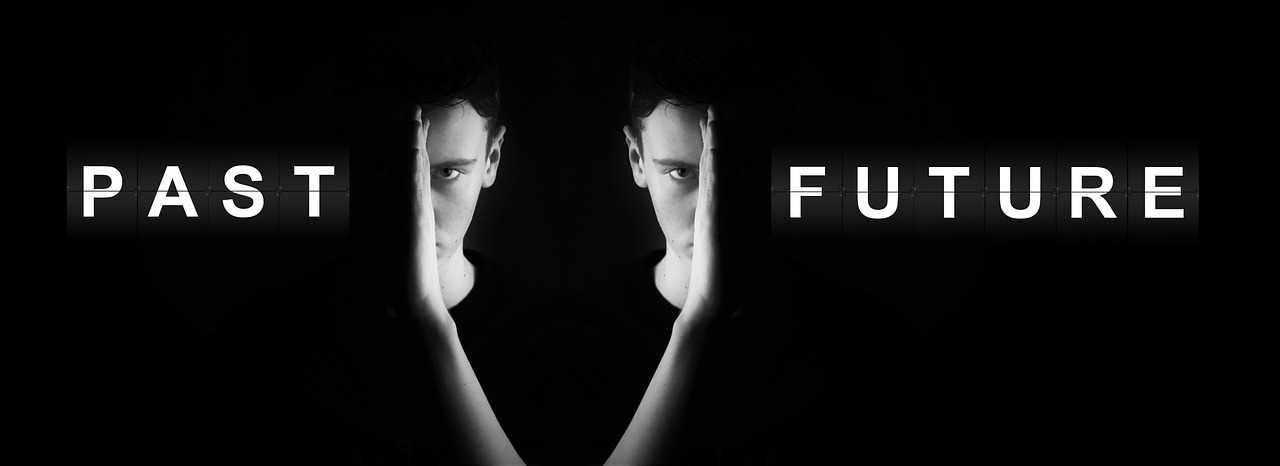
Panta Rhei,
The phrase Panta Rhei, which translates to everything flows, is a cornerstone of Heraclitus' philosophy and encapsulates his revolutionary view on the nature of reality. Imagine standing by a river, watching the water rush past. Even though the riverbed remains the same, the water is never static; it is in constant motion, just like everything in the universe according to Heraclitus. This idea challenges our traditional notions of stability and permanence, suggesting instead that change is the only constant in life.
Heraclitus believed that everything in our world is subject to change, and nothing remains the same. This notion can be quite unsettling, as it forces us to confront the idea that our identities, relationships, and even our beliefs are not fixed entities but are instead fluid and evolving. Consider, for example, how a person changes over time due to experiences, relationships, and even the passage of time itself. The 'you' of today is not the same as the 'you' of five years ago, and yet, you are still undeniably you. This paradox highlights the essence of Panta Rhei.
Moreover, Heraclitus’ philosophy suggests that change is not merely chaotic; it is a necessary part of the universe's order. He famously observed that opposites are essential for harmony, implying that without change, there can be no growth or development. For instance, think about the changing seasons. Each transition—from the vibrant blooms of spring to the quiet dormancy of winter—is essential for the cycle of life. This cyclical nature of existence reflects Heraclitus' assertion that change is not just inevitable but also vital for the continuity of life.
To further grasp the implications of Panta Rhei, we can consider its impact on various aspects of existence:
- Personal Growth: Embracing change allows individuals to evolve and adapt, fostering resilience and personal development.
- Relationships: Understanding that relationships can change helps us navigate the complexities of human interaction, promoting empathy and acceptance.
- Societal Progress: Societies that recognize the necessity of change are often more innovative and responsive to the needs of their citizens.
In summary, Panta Rhei serves as a profound reminder that change is not something to be feared but embraced. It encourages us to remain open to new experiences, to learn from the past, and to adapt to the ever-evolving tapestry of life. By accepting the fluid nature of existence, we can find a deeper understanding of ourselves and the world around us.

meaning
This article explores the fundamental concepts of Heraclitus' philosophy, focusing on the ideas of the Logos and the nature of change in the universe, providing insights into his profound thoughts.
Heraclitus introduced the term Logos to describe the underlying order of the cosmos. This section delves into its meaning and significance in his philosophy, emphasizing its role in understanding the universe.
Change is central to Heraclitus' thought. Here, we examine his assertion that everything is in a constant state of flux, highlighting how this concept challenges traditional views of permanence and stability.
The phrase Panta Rhei, meaning everything flows, encapsulates Heraclitus' belief in perpetual change. This subsection discusses its implications for understanding reality and existence.
Heraclitus famously stated that opposites are necessary for harmony. This section explores how contradictions contribute to the process of change and the balance of the universe.
This part analyzes how Heraclitus reconciles the idea of change with the notion of identity, suggesting that identity is not fixed but rather evolves over time.
Fire symbolizes transformation in Heraclitus' philosophy. This section investigates how he uses fire as a metaphor for change and the dynamic nature of existence.
Heraclitus posits that opposites are interconnected and essential for the harmony of the universe. This section discusses how this idea shapes his understanding of reality and existence.
Heraclitus employs dialectical reasoning to illustrate the relationship between opposites. This subsection explores how this method enhances our comprehension of change and unity.
Heraclitus' ideas have significantly impacted subsequent philosophical thought. This section highlights how his concepts of Logos and change influenced thinkers like Plato and the Stoics.
The term Logos in Heraclitus' philosophy is deeply layered, representing not just a principle of order but also a unifying force in a chaotic universe. It signifies a rational structure that underlies the ever-changing world around us. Think of it as the glue that holds everything together amidst the constant flux. Just like a river that flows continuously yet retains its identity, the Logos serves as a bridge between the transient and the eternal. This duality is essential for understanding how Heraclitus viewed reality; he believed that while everything is in motion, there exists a coherent framework that connects all changes.
In essence, the Logos is the reason or principle that governs the universe, guiding the process of change and ensuring that chaos does not reign supreme. It invites us to ponder questions like:
- How can we find stability in a world that is always changing?
- What role does reason play in our understanding of the universe?
- Can opposites truly coexist harmoniously?
These questions echo through the ages, prompting us to reflect on the nature of existence itself. By embracing the concept of Logos, we can begin to appreciate the intricate balance of forces at play in our lives and the world around us.
- What is the main idea of Heraclitus' philosophy?
Heraclitus' philosophy centers around the concepts of change and the Logos, emphasizing that everything is in a constant state of flux. - How does Heraclitus define the Logos?
The Logos is the underlying order of the cosmos, a rational principle that connects and governs all changes in the universe. - What does "Panta Rhei" mean?
"Panta Rhei" translates to "everything flows," encapsulating Heraclitus' belief in the perpetual state of change. - How do opposites relate to each other in Heraclitus' thought?
Heraclitus believed that opposites are necessary for harmony, and their interaction contributes to the balance of the universe.

everything flows,
This article explores the fundamental concepts of Heraclitus' philosophy, focusing on the ideas of the Logos and the nature of change in the universe, providing insights into his profound thoughts.
Heraclitus introduced the term Logos to describe the underlying order of the cosmos. This section delves into its meaning and significance in his philosophy, emphasizing its role in understanding the universe.
Change is central to Heraclitus' thought. Here, we examine his assertion that everything is in a constant state of flux, highlighting how this concept challenges traditional views of permanence and stability.
The phrase Panta Rhei, meaning everything flows, encapsulates Heraclitus' belief in perpetual change. Imagine standing by a river; the water that touches your feet is never the same water that flows past a moment later. This metaphor beautifully illustrates Heraclitus' perspective on reality—nothing is static. Everything around us, from the smallest particle to the vast cosmos, is in a state of constant transformation. This idea can be unsettling, as it challenges our innate desire for stability and permanence. However, it also opens up a deeper understanding of existence.
In Heraclitus' view, change is not merely an external phenomenon but an intrinsic part of being. Everything we perceive is subject to the relentless flow of time and circumstance. To grasp the essence of change, we must recognize that:
- Life is dynamic: Our experiences shape us, and we are never the same person we were yesterday.
- Nature is transformative: Seasons change, and so do ecosystems, reminding us that adaptation is essential for survival.
- Thoughts evolve: Our beliefs and perspectives shift as we encounter new ideas and experiences.
This continuous flow of change leads us to a profound realization: nothing exists in isolation. The interplay of various elements creates a rich tapestry of life, where every thread is essential to the whole. Heraclitus invites us to embrace this fluidity, encouraging us to find beauty in the transient nature of existence. The acceptance of Panta Rhei can liberate us from the fear of change, allowing us to navigate life's uncertainties with grace and resilience.
Heraclitus famously stated that opposites are necessary for harmony. This section explores how contradictions contribute to the process of change and the balance of the universe.
This part analyzes how Heraclitus reconciles the idea of change with the notion of identity, suggesting that identity is not fixed but rather evolves over time.
Fire symbolizes transformation in Heraclitus' philosophy. This section investigates how he uses fire as a metaphor for change and the dynamic nature of existence.
Heraclitus posits that opposites are interconnected and essential for the harmony of the universe. This section discusses how this idea shapes his understanding of reality and existence.
Heraclitus employs dialectical reasoning to illustrate the relationship between opposites. This subsection explores how this method enhances our comprehension of change and unity.
Heraclitus' ideas have significantly impacted subsequent philosophical thought. This section highlights how his concepts of Logos and change influenced thinkers like Plato and the Stoics.
- What does "Panta Rhei" mean? - It means "everything flows," emphasizing the idea that change is constant and inherent in all aspects of life.
- How does Heraclitus view change? - He believes that change is fundamental to existence and that nothing remains the same over time.
- What role do opposites play in Heraclitus' philosophy? - Opposites are interconnected and necessary for achieving harmony in the universe.
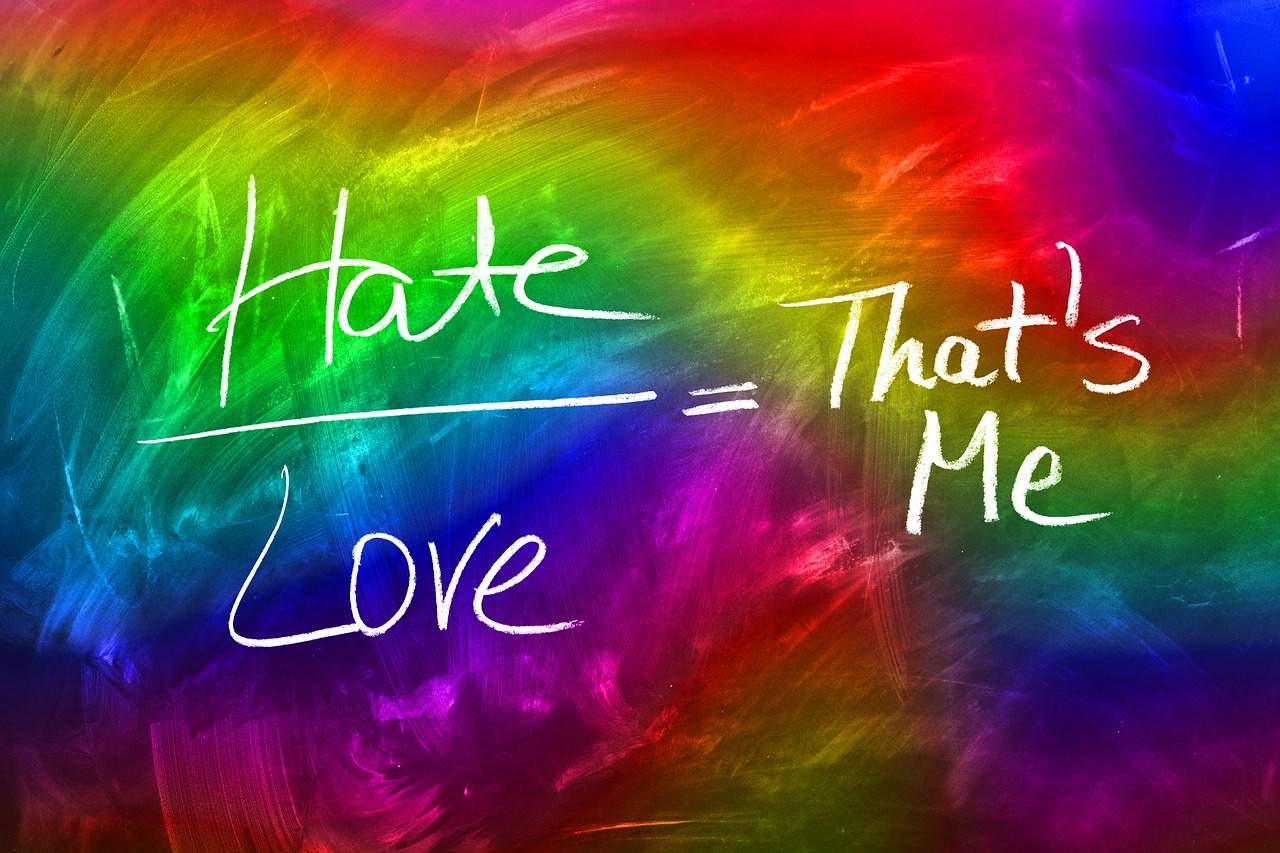
encapsulates Heraclitus' belief in perpetual change. This subsection discusses its implications for understanding reality and existence.
This article explores the fundamental concepts of Heraclitus' philosophy, focusing on the ideas of the Logos and the nature of change in the universe, providing insights into his profound thoughts.
Heraclitus introduced the term Logos to describe the underlying order of the cosmos. This section delves into its meaning and significance in his philosophy, emphasizing its role in understanding the universe.
Change is central to Heraclitus' thought. Here, we examine his assertion that everything is in a constant state of flux, highlighting how this concept challenges traditional views of permanence and stability.
The phrase Panta Rhei, meaning everything flows, encapsulates Heraclitus' belief in perpetual change. This subsection discusses its implications for understanding reality and existence.
When we think about the world around us, it often feels like we’re standing on solid ground, right? But Heraclitus shakes that notion to its core. He argues that nothing remains the same; everything is in a state of flux. Imagine a river: you can never step into the same water twice because it’s always moving, always changing. This idea of perpetual change isn’t just a philosophical musing; it’s a lens through which we can view the very fabric of reality.
So, what does this mean for our understanding of existence? Here are a few implications:
- Reality is Dynamic: If everything is in constant change, then reality is not a static entity but a dynamic process. This means our perceptions and experiences are always evolving.
- Embracing Uncertainty: Heraclitus encourages us to embrace the uncertainty of life. Clinging to fixed ideas or identities can lead to frustration because, like the river, everything is subject to change.
- Growth and Transformation: Change is not something to be feared; rather, it’s an opportunity for growth. Just as a caterpillar transforms into a butterfly, our lives are filled with moments of profound transformation.
Heraclitus’ perspective invites us to reconsider how we define ourselves and our realities. Instead of viewing identity as a fixed point, he suggests it’s more like a flowing stream—constantly shaped by experiences, thoughts, and interactions. The implications of this perspective extend beyond philosophy and into our everyday lives, influencing how we approach relationships, personal development, and even our understanding of the universe itself.
Heraclitus famously stated that opposites are necessary for harmony. This section explores how contradictions contribute to the process of change and the balance of the universe.
This part analyzes how Heraclitus reconciles the idea of change with the notion of identity, suggesting that identity is not fixed but rather evolves over time.
Fire symbolizes transformation in Heraclitus' philosophy. This section investigates how he uses fire as a metaphor for change and the dynamic nature of existence.
Heraclitus posits that opposites are interconnected and essential for the harmony of the universe. This section discusses how this idea shapes his understanding of reality and existence.
Heraclitus employs dialectical reasoning to illustrate the relationship between opposites. This subsection explores how this method enhances our comprehension of change and unity.
Heraclitus' ideas have significantly impacted subsequent philosophical thought. This section highlights how his concepts of Logos and change influenced thinkers like Plato and the Stoics.
- What is the main idea behind Heraclitus' philosophy? Heraclitus believes that change is the fundamental essence of the universe, encapsulated in the concept of Logos.
- How does Heraclitus view identity? He suggests that identity is not fixed; it evolves over time, much like everything else in the universe.
- What does Panta Rhei mean? It translates to "everything flows," emphasizing the idea of perpetual change.

Contradictions in Change
Heraclitus famously asserted that opposites are necessary for harmony. This idea may sound paradoxical at first, but it is at the heart of his philosophy regarding change. Think about it: how can we appreciate light without darkness? How can we understand joy without sorrow? In the grand tapestry of existence, contradictions are not just inevitable; they are essential. Heraclitus believed that the interplay of opposites creates a dynamic equilibrium in the universe, where every force has a counterforce. This balance is what drives change and maintains the cosmic order.
To illustrate this point, consider the concept of a musical symphony. Each instrument plays a different note, and while they may seem dissonant when played alone, together they create a harmonious piece of music. Similarly, Heraclitus viewed the universe as a grand symphony of contradictions, where each opposing force contributes to the overall harmony of existence. Without these contradictions, life would be monotonous and devoid of depth.
Heraclitus’ assertion that “strife is justice” encapsulates this idea perfectly. He suggested that conflict and struggle are not merely disruptive forces but rather vital components of a just and balanced universe. This perspective challenges the traditional view that seeks to eliminate conflict in favor of stability. Instead, Heraclitus invites us to embrace the chaos and recognize that it is through these struggles that we find growth and transformation.
Moreover, the dialectical nature of change implies that every state of being is inextricably linked to its opposite. For instance, consider the cycle of life and death. One cannot exist without the other, and it is through this cycle that life continues to evolve. Heraclitus’ insights remind us that the world is not static; rather, it is a constantly shifting landscape where contradictions fuel progress.
In a way, Heraclitus’ philosophy serves as a guide for navigating the complexities of life. By recognizing and accepting the contradictions inherent in our experiences, we can cultivate a deeper understanding of ourselves and the world around us. The next time you encounter a challenge or a conflicting emotion, remember that these are not hindrances but rather opportunities for growth and transformation. Embracing this perspective can lead to a richer, more fulfilling existence.
In summary, Heraclitus’ view on contradictions in change highlights the importance of opposites in achieving harmony. This philosophy encourages us to embrace the complexities of life, recognizing that through conflict and contradiction, we can achieve a deeper understanding of reality. Just as day turns into night, and joy can be found in sorrow, the universe thrives on the balance created by its opposing forces.
- What does Heraclitus mean by "everything flows"? Heraclitus believed that everything in the universe is in a constant state of change, encapsulated in the phrase "Panta Rhei," which translates to "everything flows."
- How do contradictions contribute to harmony according to Heraclitus? He argued that opposites are interconnected and necessary for the balance of the universe, much like how different musical notes create harmony when played together.
- Can we apply Heraclitus' philosophy to modern life? Absolutely! Embracing change and recognizing the value of contradictions can lead to personal growth and a deeper understanding of our experiences.

Change and Identity
Heraclitus presents a fascinating perspective on the relationship between change and identity, suggesting that these two concepts are not mutually exclusive but rather intertwined in a complex dance. At first glance, one might think of identity as something fixed and unchanging, like a statue carved from stone. However, Heraclitus challenges this notion by asserting that identity is much more like a river—constantly flowing and evolving. Just as the waters of a river change with every passing moment, so too does our identity shift and adapt over time.
To understand this dynamic interplay, we must consider Heraclitus’ famous assertion that "you cannot step into the same river twice." This phrase encapsulates the idea that while we may perceive ourselves as stable beings, we are, in fact, always in a state of becoming. Our experiences, thoughts, and emotions continually shape who we are. In this light, identity becomes a fluid concept, influenced by external circumstances and internal reflections.
Furthermore, Heraclitus introduces the idea that contradictions play a vital role in the formation of identity. He believed that our identities are not merely the sum of our experiences but are also defined by the tensions and conflicts we encounter. For instance, the struggle between our desires and our responsibilities can lead to profound personal growth. This dialectical process—where opposites coexist and interact—helps us forge a more nuanced understanding of ourselves.
Consider the following points that illustrate Heraclitus’ view on change and identity:
- Identity is dynamic: Just as a tree grows and changes with the seasons, our identity evolves based on our life experiences.
- Embracing contradictions: Recognizing that we can hold conflicting feelings or beliefs can lead to a richer, more authentic self-understanding.
- Continuous transformation: Life events, relationships, and challenges continuously shape our identity, making it a lifelong journey of self-discovery.
In essence, Heraclitus invites us to embrace the idea that our identity is not a static label but a vibrant tapestry woven from the threads of change. By acknowledging the fluidity of our existence, we can better navigate the complexities of life and foster a deeper understanding of ourselves and our place in the universe. So, the next time you find yourself pondering who you are, remember that you are not just a single entity but rather a collection of experiences, contradictions, and ever-evolving narratives.
- What does Heraclitus mean by "everything flows"?
Heraclitus' phrase "Panta Rhei," or "everything flows," signifies that change is the only constant in the universe. Nothing remains the same, and everything is subject to transformation. - How does Heraclitus view identity?
Heraclitus believes that identity is not fixed; instead, it evolves over time through experiences and changes, much like a river that is never the same from one moment to the next. - Why are contradictions important in Heraclitus' philosophy?
Contradictions highlight the dynamic nature of reality. Heraclitus posits that opposites are necessary for harmony and contribute to the process of change, shaping our understanding of identity.

The Role of Fire
In the rich tapestry of Heraclitus' philosophy, fire emerges as a vital symbol of transformation and change. For Heraclitus, fire is not merely a physical element; it embodies the very essence of existence itself. Just as fire consumes and transforms everything it touches, so too does change shape our lives and the universe around us. This metaphor of fire is profound, suggesting that just as flames flicker and dance, so does reality shift and evolve.
Heraclitus believed that fire represents the underlying principle of Logos, the rational structure that governs the universe. In his view, everything is subject to the transformative power of fire, which serves as a reminder that nothing remains static. The flames of fire can be seen as a reflection of the constant state of flux that defines our world. To illustrate this point, consider how a fire can both create warmth and destroy; it is this duality that mirrors the complexities of life itself.
Moreover, Heraclitus argued that fire is a primary element among others such as water, earth, and air, highlighting its significance in understanding the cosmos. Just as fire can change form, it also symbolizes the interconnectedness of all things. For instance, when wood burns, it transforms into ash, smoke, and heat, demonstrating how one state of being can transition into another. This cyclical nature of fire reinforces the idea that change is not only inevitable but essential for growth and renewal.
To further understand the role of fire in Heraclitus' philosophy, let’s break down its implications:
- Transformation: Fire signifies the constant transformation of matter and ideas, reminding us that nothing is permanent.
- Dynamic Nature: Just as fire is dynamic, so too is the universe; it is in a state of continual evolution.
- Unity of Opposites: Fire embodies the unity of opposites; it can be both a source of light and a cause of destruction.
In essence, fire serves as a powerful metaphor for understanding the philosophical underpinnings of change. It invites us to embrace the chaos and unpredictability of life, urging us to recognize that through destruction comes creation, and through change comes identity. Heraclitus’ emphasis on fire compels us to reflect on our own lives: Are we willing to let go of the old to make way for the new? Are we ready to accept that change, like fire, can illuminate our paths and forge new beginnings?

Unity of Opposites
Heraclitus, often regarded as the philosopher of change, also introduced the profound idea of the . This concept is not merely a philosophical abstraction; it serves as a lens through which we can understand the intricate dance of existence. Imagine a world where everything is in a constant state of flux, yet somehow, these opposing forces work together to create harmony. It’s like a symphony where dissonant notes blend to produce a beautiful melody. In essence, Heraclitus suggests that opposites are not just at odds but are actually interconnected and essential for the universe’s balance.
To grasp the significance of this idea, consider the following points:
- Interdependence: Light and darkness, hot and cold, life and death—these opposites define each other. Without darkness, light loses its meaning; without life, death cannot exist. Heraclitus believed that these dualities are necessary for a complete understanding of reality.
- Dynamic Balance: Just as a tightrope walker must maintain balance between opposing forces to avoid falling, the universe relies on the interplay of opposites to sustain order. This dynamic balance is what allows for growth, change, and evolution.
- Embracing Contradictions: Heraclitus famously stated, "War is the father of all things." This provocative assertion highlights how conflict and contradiction can lead to creation and progress. In life, we often face challenges that seem contradictory, yet these very challenges can lead to personal growth and understanding.
Heraclitus’ perspective encourages us to embrace contradictions rather than shy away from them. It’s a reminder that life is not black and white; it’s a spectrum of experiences that shape our reality. By recognizing the unity of opposites, we can cultivate a deeper appreciation for the complexities of existence.
In the grand scheme of things, this philosophy resonates with various aspects of life, from relationships to nature. For instance, consider the changing seasons. Each season brings its own set of challenges and beauties, yet they are all essential for the cycle of life. Spring’s blooms can only emerge after the harshness of winter, illustrating how opposites work together to create a vibrant world.
Furthermore, the unity of opposites can be seen in human emotions. Joy and sorrow, love and hate—these feelings often coexist, enriching our experiences. They remind us that to fully appreciate happiness, we must also understand sadness. This intricate interplay shapes our identities and influences our actions.
In conclusion, Heraclitus' idea of the unity of opposites offers a profound insight into the nature of reality. It challenges us to look beyond surface-level contradictions and recognize the deeper connections that bind our world together. By embracing this philosophy, we can find harmony in the chaos and appreciate the beauty of life's complexities.

Dialectical Thinking
Dialectical thinking is a fascinating concept that lies at the heart of Heraclitus’ philosophy. It involves understanding the world through the lens of opposites and contradictions, which are not merely opposing forces but are essential to the harmony of the universe. Imagine a dance where every step forward requires a step back; this is how Heraclitus viewed the interplay of opposites. He believed that without these contradictions, there could be no progress or change.
To grasp the essence of dialectical thinking, consider how Heraclitus used the metaphor of a river. When he said, "You cannot step into the same river twice," he was highlighting that both the river and the person stepping in are in a constant state of change. This idea encourages us to embrace the dynamic nature of reality rather than cling to static notions of existence. In this way, dialectical thinking compels us to recognize that stability is an illusion, and true understanding comes from acknowledging the fluidity of life.
Moreover, Heraclitus' dialectical approach can be broken down into several key aspects:
- Interconnectedness: Opposites are not isolated; they are interconnected and give rise to each other. For instance, light cannot exist without darkness, and joy is often contrasted with sorrow.
- Transformation: Change is not just a process but a fundamental aspect of existence. Everything is in a state of becoming, where one form transitions into another.
- Harmony through Conflict: Just as a musical composition relies on both harmony and dissonance, the universe thrives on the tension between opposites. This tension creates balance and order.
Through dialectical thinking, Heraclitus invites us to question our preconceived notions and embrace a more nuanced understanding of reality. This method of reasoning has profound implications not only for philosophy but also for everyday life. It teaches us to appreciate the complexities of human experiences, where joy can coexist with pain, and growth often arises from struggle.
In essence, Heraclitus' dialectical thinking encourages us to see beyond the surface and recognize the deeper connections that bind us all. It serves as a reminder that life is a continuous process of change, and by embracing this reality, we can cultivate a more profound appreciation for the world around us.
What is dialectical thinking?
Dialectical thinking is a method of understanding the world through the relationship and interplay between opposites. It emphasizes that contradictions are not just conflicts but are necessary for achieving harmony and balance.
How did Heraclitus use dialectical thinking?
Heraclitus used dialectical thinking to illustrate how opposites are interconnected and essential for understanding change and reality. His famous saying about the river exemplifies this dynamic nature of existence.
Why is dialectical thinking important?
Dialectical thinking is important because it challenges static views of reality, encourages deeper understanding, and promotes acceptance of change as a constant aspect of life.
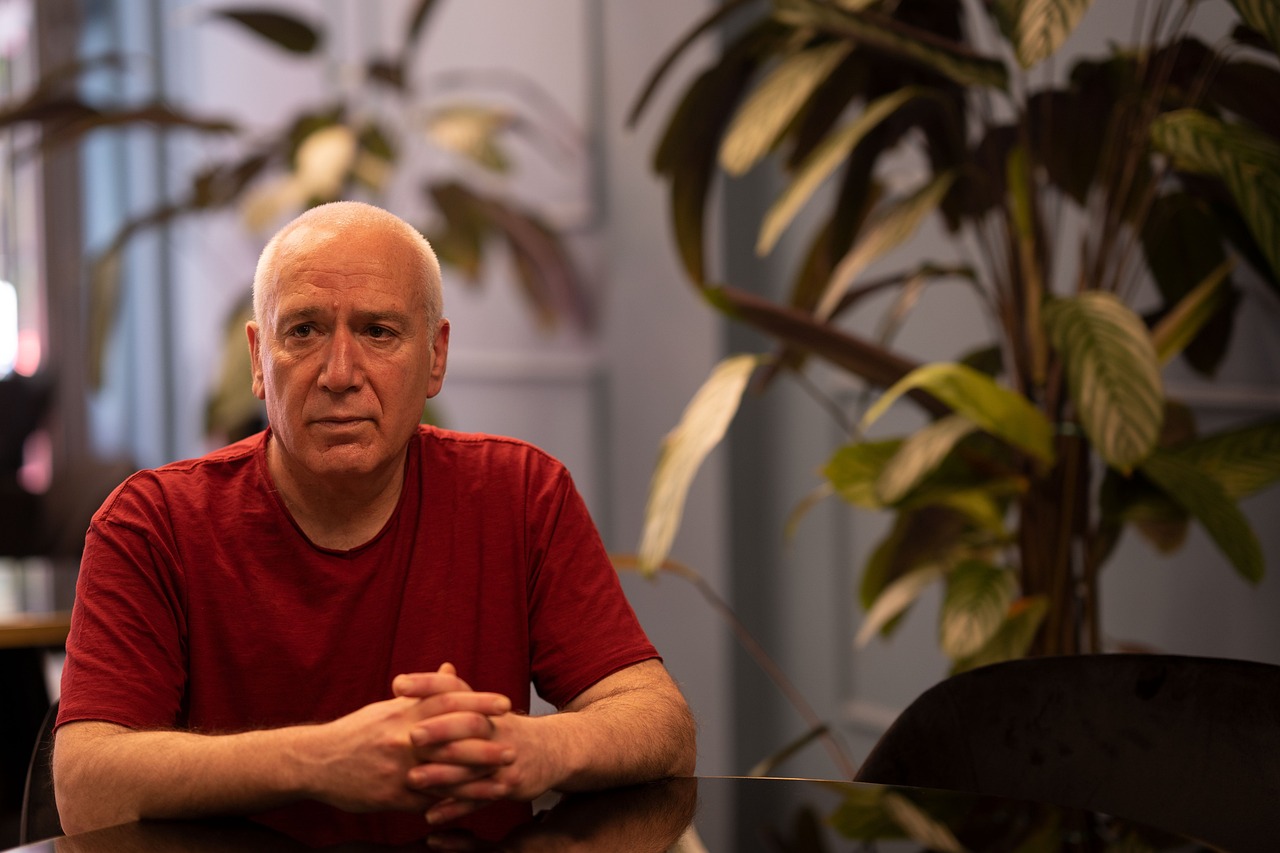
Influence on Later Philosophers
Heraclitus' thoughts on the Logos and the nature of change have reverberated through the corridors of philosophical history, leaving an indelible mark on many great thinkers. His ideas were not just fleeting whispers of ancient wisdom; they became the foundation upon which future philosophies were built. For instance, Plato, who often grappled with the nature of reality, was influenced by Heraclitus' assertion that change is fundamental to existence. Plato's theory of forms, which posits that the tangible world is a mere shadow of a more perfect reality, can be seen as a response to Heraclitus' claim that everything is in flux. While Plato sought permanence in the realm of forms, Heraclitus would argue that even these forms are subject to change.
Furthermore, the Stoics, who emerged later, embraced Heraclitus' idea that the universe is in a constant state of change. They adopted his notion of the Logos as a rational structure that governs the cosmos, suggesting that understanding this rational order is essential for achieving virtue and tranquility. The Stoics believed that by aligning oneself with the Logos, one could attain a harmonious existence despite the inevitable changes and challenges of life. This belief echoes Heraclitus' view that embracing change is crucial for personal growth and understanding.
To illustrate the breadth of Heraclitus' influence, consider the following table that highlights key philosophers and how they were impacted by his ideas:
| Philosopher | Key Concept Influenced by Heraclitus |
|---|---|
| Plato | Theory of Forms |
| Stoics | Logos as Rational Order |
| Hegel | Dialectical Method |
| Nietzsche | Concept of Eternal Recurrence |
Moreover, later philosophers like Hegel and Nietzsche also drew inspiration from Heraclitus. Hegel's dialectical method, which emphasizes the development of ideas through contradictions, resonates with Heraclitus' notion that opposites are essential for harmony. Meanwhile, Nietzsche's concept of eternal recurrence reflects a deep engagement with the idea of perpetual change, echoing Heraclitus' belief that life is a continuous cycle of transformations.
In conclusion, Heraclitus' philosophy serves as a cornerstone for many philosophical traditions. His insights into the nature of change and the interconnectedness of opposites not only challenge our understanding of reality but also encourage us to embrace the dynamic nature of existence. By recognizing the influence of Heraclitus on later thinkers, we can appreciate how his ideas continue to shape our understanding of the world today.
- What is the main idea of Heraclitus' philosophy? Heraclitus believed that change is the fundamental essence of the universe, famously stating that "everything flows."
- How did Heraclitus influence Plato? Heraclitus' ideas on change prompted Plato to develop his theory of forms, suggesting that the material world is an imperfect reflection of a more stable reality.
- What role does the concept of Logos play in Heraclitus' philosophy? The Logos represents the rational principle that orders the cosmos, serving as a bridge between the ever-changing world and the underlying unity of existence.
Frequently Asked Questions
- What is the meaning of Logos in Heraclitus' philosophy?
Logos refers to the underlying order and reason of the cosmos. It's the principle that connects everything in the universe, suggesting that there is a rational structure to the chaos we observe.
- How does Heraclitus view change?
Heraclitus believes that change is the only constant in life, encapsulated in his famous phrase "Panta Rhei," which means "everything flows." He argues that nothing remains the same and that change is essential for existence.
- What does Heraclitus mean by "Unity of Opposites"?
Heraclitus posits that opposites are interconnected and necessary for harmony in the universe. For instance, light and dark, hot and cold, are not just contrasts but are essential for understanding the whole.
- Why is fire significant in Heraclitus' philosophy?
Fire symbolizes transformation and the dynamic nature of existence. Heraclitus uses fire as a powerful metaphor for change, illustrating how everything is in a state of flux and transformation.
- How did Heraclitus influence later philosophers?
Heraclitus' ideas on Logos and change had a profound impact on later thinkers like Plato and the Stoics. His concepts laid the groundwork for discussions on existence, identity, and the nature of reality.
- What does "Panta Rhei" signify in Heraclitus' thought?
"Panta Rhei" translates to "everything flows," highlighting the idea that all things are in a continuous state of change. This concept challenges the notion of permanence and emphasizes the fluidity of life.
- How does Heraclitus reconcile change with identity?
Heraclitus suggests that identity is not fixed but evolves over time, much like everything else. This means that while we may have a sense of self, it is subject to the same changes that affect everything in the universe.
- What is dialectical thinking in the context of Heraclitus?
Dialectical thinking refers to understanding the relationship between opposites. Heraclitus uses this method to illustrate how contradictions can lead to harmony and a deeper understanding of change and existence.


